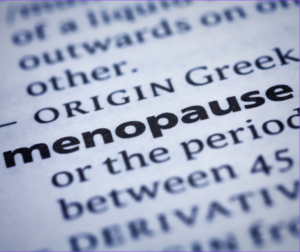What is meant my medical certification?
We all have different names for the same document – a note issued by the Doctor to certify that the employee is not fit for work. Sometimes, they’re called Fit notes, Medical Certificates, Doctor’s note, or maybe a Statement of Fitness for Work, Med 3 or sick note.
Regardless of what you call them, it is a certificate signed by the GP and sometimes they are issued in hard copy or more so, these days with telephone consultations, electronically.
Can the employer check whether the certificate is genuine?
Yes, some employers check although it is quite time consuming but it is not uncommon for an employee to forge a sick note – however, it’s rare. You can call the Surgery to check that a certificate was issued for the employee in question but if you call every time you receive a Doctor’s certificate, it will become quite onerous and 99% of the time, they will be genuine even if sometimes, they aren’t fully filled in. They might come through without the employee’s date of birth or NI number.
The basic principles of medical certificates
Employees can self-certify for up to 7 calendar days and after that entitlement to SSP or enhanced Company sick pay is based on a valid sick note. They are rarely issued for less than a week and commonly for 2 or 4 weeks – but can be longer. A common question from employers is whether an employee must be signed fit to return to work – unless there are exceptional circumstances, this is not necessary.
Even if the employer thinks that there’s nothing wrong with the employee, it is important to remember that a medical certificate has been issued by a medically qualified professional and if you question a sick note, you are questioning the clinical judgement of a Doctor.
The medical certification must be in respect of the employee. If an employee is absent because a family member has died, that will be dealt with as bereavement. After 7 days, if the employee is not able to return to work, they either need to get medical certification or discuss the situation with their employer and it may be agreed that they take time as holiday or as unpaid leave. The Company may grant them paid leave.
Admittedly, it’s galling when you have an employee signed off by a Doctor and their colleagues are seeing pictures of them at a party on social media – but the concept of a sick note is that the employee is not fit to be at work.
Employers will say – “There’s nothing wrong with him, he was out walking the dog at the weekend”. The GP has said he isn’t fit for work and the purpose of this insight is not to debate how easy it is to get a sick note from a Doctor.
Light duties or phased return
It is quite common for a GP to suggest on a sick note that the employee could either return on a phased return basis or light duties. They are subtly different – phased return means doing the job but on a phased basis ie morning only or limited hours whilst light duties means that the employee is able to return to work to do their normal hours but is unable to carry out certain duties ie heavy lifting.
It will not always be practicable for the employer to be able to accommodate light duties or a phased return so ideally, returns to work for either phased return or light duties should be in consultation with the employer. If an employer says that they are unable to accommodate light duties, the employer remains unfit for work.
Returning to work too soon
If an employee is only in receipt of SSP during their absence, it is quite common for the employee to return to work because they can’t afford to stay at home on SSP. If you believe that an employee has returned too soon, you should conduct a return to work interview with the employee and if you believe that they are still not fit to be at work, or importantly, they compromise your ability to meet your statutory obligation to offer a duty of care, you must tell them not to work.
This situation can apply in situations where the employee has mental health issues but is unwilling to face up to the issues and seek help but the situation can also manifest itself where the employee does dangerous manual work. For instance, you may have a Fork Lift Truck driver who is drowsy from medication – is this employee safe to be driving an FLT in a busy warehouse?
Medication side effects
In a number of situations, employees will be at work but taking medication and there may be side effects of the medication which mean that the employee is unable to do their job safely. The most obvious issues with medication are “may cause drowsiness” and “do not operate dangerous machinery”.
You must discuss these issues with employees because this could adversely impact on your ability to offer a safe working environment for colleagues and invariably, the employee will not want to share with their employer details of their medication. Again, most commonly, an employee will not want to say to their employer that they’re taking anti-depressants but most medication has side effects and these will be more prominent based on the Mg dosage that has been prescribed.
If you want help dealing with any of these issues, you’re going to need HR Support – either call Adrian on 07885 714771 or e-mail adrian@abhrsolutions.co.uk



